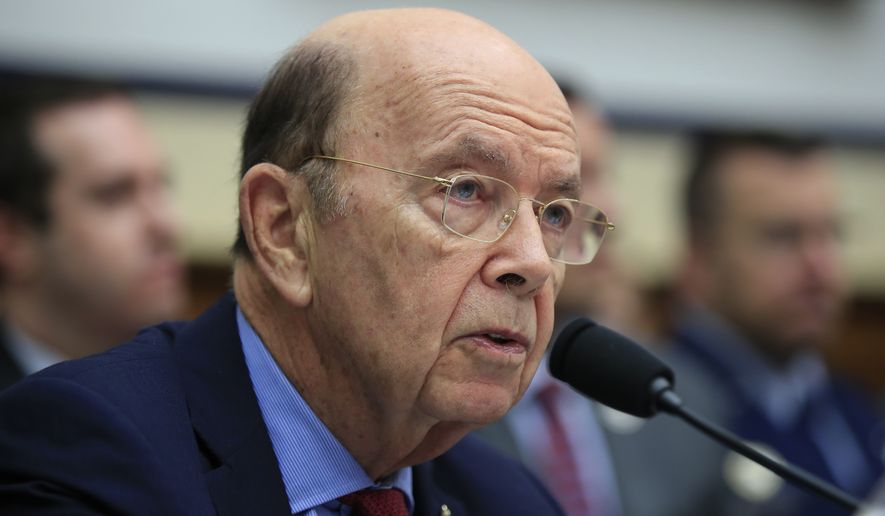The Supreme Court stepped in Monday to block anti-Trump immigrant-rights activists and New York’s attorney general from forcing Commerce Secretary Wilbur Ross to sit for a deposition in the lawsuit over asking about citizenship on the 2020 census.
The justices gave the government a week to file an official appeal.
They did rule that in the meantime, a senior Justice Department official could be questioned about the citizenship decision, and other avenues of legal discovery could proceed — marking victories for the administration’s opponents.
But the court left open the chance for the government to argue those, too, overstepped their bounds, in the upcoming arguments over Mr. Ross’s deposition.
All of the justices agreed to halt the Ross deposition — but Justices Neil M. Gorsuch and Clarence Thomas said they would have gone even further and halted the New York challenge altogether.
Halting Mr. Ross’s deposition is at least a tentative victory for Attorney General Jeff Sessions, who just last week had lambasted the lower court judges who’d approved the questioning. Mr. Sessions called it an unconstitutional intrusion by the judiciary into the executive branch’s decision-making.
The case involves Mr. Ross’s decision earlier this year to restore a question to the full decennial census prodding Americans to divulge their citizenship. New York Attorney General Barbara Underwood and the New York Immigration Coalition both sued to try to delete the question.
Mr. Ross said he made the decision at the behest of the Justice Department, which late last year wrote a letter saying the information would be helpful to evaluating voting rights violations.
But emails obtained during discovery in the case have since showed White House officials pushed for the change well before the Justice Department letter.
A district judge concluded there was evidence of “bad faith” on the part of Mr. Ross in his decision-making, which could, the judge said, make the addition of the question illegal.
Justice Gorsuch, in an opinion joined by Justice Thomas, said that was iffy, and questioned the judge’s move to hold a trial next month “to prove the secretary’s mental processes.”
“This is all highly unusual, to say the least. Leveling an extraordinary claim of bad faith against a coordinate branch of government requires an extraordinary justification,” he wrote.
He said what Mr. Ross appears to have done was have an opinion in favor of the citizenship question when he took office, then seeking other advice and acting on it.
“Of course, some people may disagree with the policy and process. But until now, at least, this much has never been thought enough to justify a claim of bad faith and launch an inquisition into a cabinet secretary’s motives,” Justice Gorsuch wrote.
He said that since the government has already signaled it would challenge the “bad faith” determination, the Supreme Court should have put the entire case on hold.
He said he hoped the lower courts got the message to tread carefully, but said he feared legal shenanigans from those challenging the Commerce Department, which oversees the Census Bureau.
Justice Gorsuch said should the high court see those kinds of moves, the justices do have ways to make sure they hear the case.
“I only hope they are not required,” he said.
Mr. Sessions, in a speech last week, said the district judge who ordered Mr. Ross to be deposed and the appeals court that upheld that decision were violating basic legal principles.
“The Census question — which has appeared in one form or another on the Census for over a hundred years — is either legal or illegal,” he said. “The words on the page don’t have a motive; they are either permitted or they are not.”
J. Christian Adams, president of the Public Interest Legal Foundation and a former Justice Department lawyer, said Monday’s ruling is a signal for how the court is leaning on the broader issues.
“The activist groups opposing a robust collection of data suffered a big loss, and the Supreme Court seems ready to deliver more blows to their case if they persist,” he said.
• Stephen Dinan can be reached at sdinan@washingtontimes.com.




Please read our comment policy before commenting.